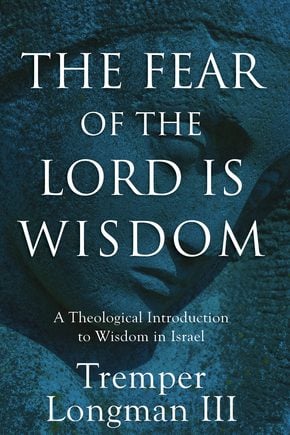 A significant issue arises for women today when reading books like Proverbs and Ecclesiastes. Are these books, and they are not alone in the Bible, patriarchal? This question is both addressed head-on by Tremper Longman, in The Fear of the Lord is Wisdom, but decisively answered.
A significant issue arises for women today when reading books like Proverbs and Ecclesiastes. Are these books, and they are not alone in the Bible, patriarchal? This question is both addressed head-on by Tremper Longman, in The Fear of the Lord is Wisdom, but decisively answered.
Here’s the problem:
We can detect this masculine focus in two areas. First, in the discourse section of Proverbs (chaps. 1-9), the father warns his son about the strange/ foreign woman…
And, the imbalance if not disregard is important for
the book focuses on the danger of predatory women and ignores the danger of predatory men.
A second example of the male-focused teaching of Proverbs can be observed in its advice concerning cohabiting with an irritating woman…we have no comparable teaching concerning the irritating male.
So, Longman sums up the problem fairly and honestly:
An honest assessment of the role of women in Proverbs, Ecclesiastes, and Job, books that we have identified as focused on wisdom, leads us to conclude that the books are clearly patriarchal. One cannot deny that they are male oriented. This is true even though it is also the case that some elements within these books empower women. Modern readers, especially in the West, must address this question.
Second, there’s some balancing of the facts:
First, we note the role of mothers in the book of Proverbs. (Prov. 1:8; see also 6:20)
Proverbs also shows its interest in mothers in addition to fathers in passages that put a premium on bringing joy to one’s mother as well as having the utmost respect for her … (Prov. 10:1; 15:20)
We should also note that on at least one occasion a mother provides instruction.
The book ends with a picture of the “noble woman” (31:10, see vv. 10-31), which, among many other wonderful qualities, also highlights her sagacious teaching (v. 26, “She opens her mouth in wisdom, and covenantal instruction is on her lips”).
Last, we will mention the Song of Songs, which we have suggested does have a connection to wisdom (though it is not wisdom literature as such …). Surprisingly, at least in its ancient context, the woman’s voice is slightly more dominant than the man’s.
Balancing taken into view still yields a serious imbalance.
Here’s Tremper Longman’s proposed solution, a Longman redemptive movement approach:
1. The OT law does not legislate the ultimate divine ethic but rather takes God’s people where they are and pushes them toward the Edenic ideal.
2. Though not the ideal, the OT law, when judged against the standards of the broader Near East, is closer to the ideal.
3. The NT moves closer to the ideal, but even then ethics have not moved fully toward the ultimate goal.
4. In spite of its less-than-full implementation of Edenic ethics, the NT often expresses theological principles that will lead to further developments toward the ideal.
Longman puts this all into one bundle.
To summarize the salient points from above, while God’s Edenic ideal was gender equality, human sin led to patriarchy, an imbalance of power between the genders. During the OT period, God did not legislate his ideal but rather pushed his human creatures toward it, differentiating Israel from the surrounding cultures. Proverbs and Ecclesiastes nonetheless reflect the patriarchy of this redemptive-historical time period. Readers in the twenty-first century AD, however, live in a different redemptive-historical moment. We live in the aftermath of the coming of Christ, which moves us closer to the Edenic ideal. In other words, we move closer to and work toward the ideal expressed in Gal. 3:28 that there is neither male nor female. We read Ecclesiastes and Proverbs accordingly.











